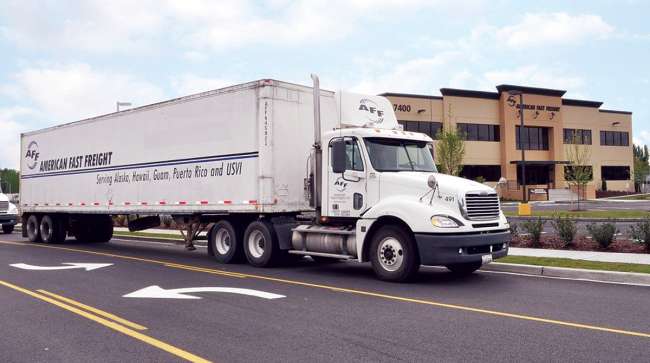Staff Reporter
Cass: Freight Shipments Down 5.9% in July, and GDP Could Be Next

[Stay on top of transportation news: Get TTNews in your inbox.]
A nationwide economic contraction, not just a freight recession, could arrive soon, according to Cass Information Systems’ July freight report.
The Cass Freight Index, a measure of monthly freight activity, showed freight shipments dropped 5.9% from July 2018 — the eighth straight month of negative volume.
Cass acknowledged that previous monthly contractions were against tough comparisons with 2018, a great freight year. But now the research firm believes a nationwide slowdown, one that would affect the entire economy, could take hold at the end of the year.
“With the 5.9% drop in July, following the 5.3% drop in June, and the 6% drop in May, we repeat our message from last two months: The shipments index has gone from ‘warning of a potential slowdown’ to ‘signaling an economic contraction,’” according to Cass’ Aug. 15 report.

It added that dissection of the second-quarter gross domestic product shows it was not as positive as initially thought. “We see a growing risk that GDP will go negative by year’s end.”
Cass is a division of St. Louis-based Cass Information Systems, which manages freight audit and payment for transportation companies.
Freight recessions happen more regularly than national recessions, according to Convoy economist Aaron Terrazas, who issued his own report in a company blog posted Aug. 15.
“We identified freight industry expansions and contractions going back to 1972, including 12 recessions — twice as many recessions as the overall economy,” Terrazas wrote. “While the U.S. economy as a whole continued to expand during the first half of 2019, the freight industry is 10 months into a recession that began in October 2018.”
The last freight recession happened in 2016 and ended in January 2017, according to DAT Solutions. The last national recession, often called the Great Recession, began in late 2007 and concluded in July 2009. The Great Recession was linked to a bubble in housing prices and had little to do with freight.
RELATED: Yield Curves Invert in US, UK as ‘Doom and Gloom’ Spreads
Cass officials said the Cass Shipments Index has gone negative before without being followed by a negative GDP.
“However, weakness in demand is now being seen across many modes of transportation, both domestically and internationally,” Cass officials wrote.
For example, the slowdown in housing and auto are now collectively producing visible weakness in flatbed trucking, viewed as a key heavy industrial indicator, Cass said.
But not everyone agrees that a slowing down of the freight market means a recession is coming. American Trucking Associations reported truck tonnage surged 7.3% in July (the largest year-over-year gain since April) compared with July 2018, according to the federation’s advanced seasonally adjusted For-Hire Truck Tonnage Index. Sequentially, tonnage increased 6.6% in July over June.
A DAT Solutions analyst was surprised to see both increased volume in spot and contract. They are up 12% in the first half, compared with a year ago.
“The increase is more pronounced in van and flatload,” DAT’s Peggy Dorf told Transport Topics.
She said she expected recent data to show even contract rates (the stronger of the rates) go down.
DAT Solutions, based in Beaverton, Ore., operates North America’s largest load board marketplace and has a database of $65 billion in trucking rates.



